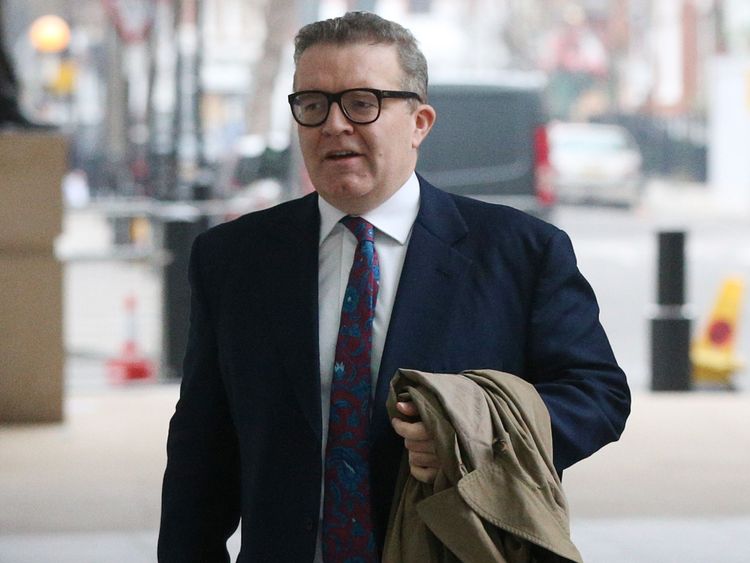[ad_1]
Labour is calling for an overhaul of gambling laws after finishing a year-long study into problem gambling, which it says must be treated as a “public health emergency”.
The changes would include allowing addicts to tell their banks to stop online gambling transactions, and a “whistle to whistle” ban on gambling adverts during live sport events.
They would also introduce a compulsory levy on gambling firms of 1% of the money they bring in, minus their payouts, to fund treatments for addicts.
Gambling operators currently pay a voluntary 0.1% donation towards problem gambling treatment, research, and education.
Labour MPs Tom Watson and Jonathan Ashworth conducted the research and consulted gambling addiction specialists, charities, industry bodies as well as addicts themselves.
Experts support tackling the ease with which problem gamblers can use their credit cards online, and say they are concerned about children seeing gambling adverts.
Mr Watson, the party’s deputy leader and shadow culture secretary, said the “world class framework for the prevention and treatment of problem gambling” would be in Labour’s next manifesto.
He said: “Problem gambling is Britain’s hidden epidemic and we must treat it as a public health emergency.
“Current gambling regulation is not up to the job of protecting addicts and those at risk of addiction.
“Treatment is patchy across the country and too often patients are misdiagnosed and not treated by specialists who can spot the signs of gambling addiction.”
Mr Watson said gambling firms must take “more responsibility for harm caused by their products and contribute more to research and treatment”.
He added: “The refusal of the current government to address any of these issues is letting problem gamblers and their families down.”
Paddy Power and Betfair said they supported a reduction in pre-watershed advertising.
They said: “We are mindful that young children may be exposed to TV gambling advertising pre-watershed during live sport and increasingly aware of the growing social, media and political concern about this unintended exposure.
“For these reasons and to preserve the long-term value of our brands we are supportive of a reduction in the amount of pre-watershed advertising.
“Due to the fragmented and competitive nature of our sector, we believe any reduction must be policy-led as individual operators cannot act unilaterally.”
The Conservative Party said Labour had liberalised the gambling market when they were in power and that it was now “correcting Labour’s mistakes”.
Chris Skidmore, the Tories’ vice chairman for policy, said it had taken numerous measures, including: “Ensuring tighter rules on gambling advertising, increasing protections around online gambling, launching a multi-million pound awareness campaign, commissioning research on the harms of problem gambling, and slashing the maximum stake on fixed odds betting terminals…”
[ad_2]








